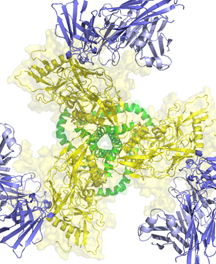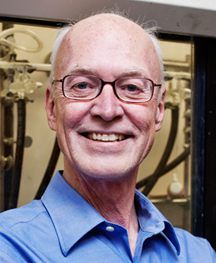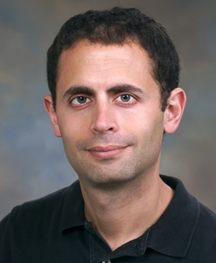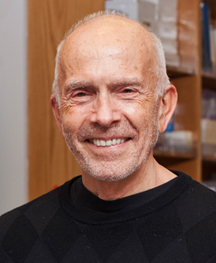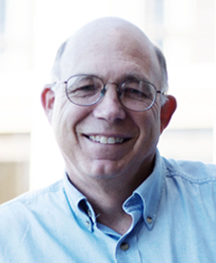Of Note
TSRI Ranks Number One in HIV/AIDS ‘Hot Papers’
The Scripps Research Institute (TSRI) is listed as the top institution for producing “hot papers” in HIV/AIDS research over the last two years, according to a recent report by Thomson Reuters. Eight of the top 20 highly cited papers in the field were affiliated with the institute. TSRI also achieved top status in 2013, the last time Thomson Reuters published such an analysis.
Four TSRI faculty members—Andrew Ward, Ian Wilson, Dennis Burton and Pascal Poignard—were listed among 10 “authors of the hottest HIV/AIDS research.” Ward, Wilson and Burton are also affiliated with the International AIDS Vaccine Initiative (IAVI) Neutralizing Antibody Center at TSRI, National Institutes of Health-sponsored Center for HIV/AIDS Vaccine Immunology and Immunogen Discovery (CHAVI-ID) at TSRI and the Collaboration for AIDS Vaccine Discovery (CAVD). Poignard is also affiliated with IAVI and has just recently moved to Université Grenoble Alpes (UGA), France.
Thomson Reuters designates publications as “hot papers” when they are cited at a rate notably above papers of comparable type and age in the same journal. To view the Thomson Reuters article, lists and charts, see “HIV/AIDS Research Transforms Outcome of Disease.” For more information on work in the Ward, Wilson and Burton labs, see their lab websites.
Four TSRI Scientists Elected to National Academy of Inventors
TSRI’s Dale Boger, Benjamin Cravatt, Paul Schimmel and Peter Schultz have been elected to the National Academy of Inventors (NAI), a distinction recognizing academic inventors who have demonstrated a prolific spirit of innovation in creating or facilitating outstanding inventions that have made a tangible impact on quality of life, economic development and the welfare of society.
Boger, who is Richard and Alice Cramer Professor of Chemistry and member of the Skaggs Institute for Chemical Biology at TSRI, focuses on the total synthesis of biologically active natural products, using the tools of organic synthesis to identify, imitate, understand, exploit and sometimes surpass what nature provides. Additional information can be found on Boger’s faculty webpage and lab website.
Cravatt, chair of the Department of Chemical Physiology, studies the action and regulation of chemical messengers, particularly bioactive lipids, which play important roles in neurobiology, immunology, and cancer. He designs and uses chemical probes for “activity-based proteomics,” or the global analysis of protein function. Further details can be found on Cravatt’s faculty webpage and lab website.
Schimmel, professor in the Department of Cell and Molecular Biology, combines biochemistry, molecular and cell biology with genetics, x-ray crystallography and evolutionary analysis to explore the nature, function and therapeutic uses of aminoacyl tRNA synthetases, enzymes that interpret genetic information in all living organisms. For more information, visit Schimmel’s faculty webpage and lab website.
Schultz, who is CEO and Scripps Family Chair Professor at TSRI, combines the tools and principles of chemistry with the molecules and processes of living cells to synthesize new molecules and molecular assemblies with novel physical, chemical and biological functions. Further information is available on Schultz’s faculty webpage and lab website.
Induction ceremonies—including a keynote address by U.S. Commissioner for Patents Andrew Hirshfeld—will be held during the NAI Fifth Annual Conference in Washington, DC, in April.
Civic Association's Scripps Florida Event Draws Capacity Crowd

An event hosted by the Palm Beach Civic Association at The Colony Pavilion on December 18 featured TSRI President Steve Kay (top right) and a panel of Scripps Florida scientists, who highlighted biomedical advances at the institute. Audience members were eager to learn more about their work. (Photos by Capehart Photography.)
SOF Fall Travel Award Winners Announced
Emi Casas, Bryn Fenwick and Brian Lamb each have won a $1,000 Society of Fellows (SoF) Fall Travel Award, which provides postdoctoral fellows an opportunity to present their work at a national or international conference.
- Casas, of the Felding lab, will attend the American Associate for Cancer Research annual meeting in New Orleans in April.
- Fenwick, of the Wright lab, will attend the American Chemical Society meeting in San Diego in March.
- Lamb, of the Romesberg lab, attended the International Chemical Congress of the Pacific Basin Societies (Pacifichem) conference this month in Hawaii.
Applications for the spring award cycle are due March 1. Selection for the SoF travel award now includes interviews with finalists, according to David Guimond, travel award program coordinator. For further details, see the SoF website.
2016 Dixon Lecture to Feature Renowned Immunologist Rafi Ahmed
The 2016 Frank J. Dixon Memorial Lecture will feature Rafi Ahmed, world-renowned immunologist and former TSRI postdoctoral fellow, speaking on “T Cell Memory and Exhaustion,” on Thursday, January 14, 4:30 PM. The event is open to the San Diego science community.
A fellow of the National Academy of Science, Ahmed is director of the Emory Vaccine Center, professor of microbiology and immunology in Emory University School of Medicine, associate director of vaccine science for the Emory Center for AIDS Research and a Georgia Research Alliance Eminent Scholar. His groundbreaking discoveries on immune memory, including the 1994 Nature paper “Cytotoxic T-cell memory without antigen” have laid the foundation for understanding vaccine-induced immune response.
The lecture will be held at The Auditorium at TSRI; a reception will follow in the Faculty Club. For directions and inquiries, contact vogtadm@scripps.edu.
Send comments to: mikaono[at]scripps.edu














